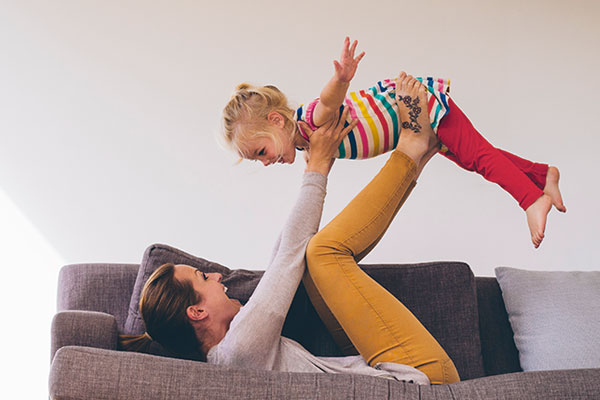super tips if you're taking parental leave
Growing your family is an exciting time, but there’s also lots to think about.
Your super might be the last thing on your mind, but it’s important to consider your financial future when you’re preparing for a new arrival. Your super could be affected by parental leave, but there are steps you can take to stay in control.

If your employer is paying parental leave, it doesn’t automatically mean you’ll still be paid super.
Career gaps can have a serious impact on your super. That’s why it’s important to ask your employer if they’ll keep paying your super while you’re on parental leave.
If your super won't be paid while you're on leave, don't panic. There are other ways you can top up your super so your future isn't impacted by your time out of the workforce.
The good news is that from 1 July 2025, the government will pay super on the Commonwealth Paid Parental Leave Scheme, narrowing the gender super gap and making Australia’s super system fairer.

We get the impact parental leave can have on your super. That’s why HESTA and HESTA Personal Super members on parental leave may be eligible to get up to a 12-month break from paying insurance fees while maintaining their cover.
It’s our way of helping to keep your growing family safe and your super where it belongs.
Your insurance fees may be waived during parental leave if:
- you’re employed, and
- your parental leave is approved by your employer, and
- your insurance cover is current.
Your employer will need to tell us when you start your parental leave by completing the Notification of parental leave form (PDF). We suggest organising this about 3 months before your due date. Then we’ll swing into action and waive your insurance fees for up to 12 months.
It’s important to be aware that if we don’t receive any contributions or roll-ins into your account for a continuous period of 16 months, your account will be considered inactive and your insurance cover will expire unless you've told us you want to keep it.

Parental leave is an important time for you and your family, but it also means taking time out of the workforce. This can have an impact on how much super you accumulate, and that means less money when you retire.
Your spouse (married or de-facto) could make an after-tax contribution to your super while you’re looking after your new addition. This is a great way to build the savings you both have to share in retirement. And on top of boosting your balance, your spouse may be eligible to claim a tax offset.
Plus you get regular contributions into your account, which, over time, grows with investment returns - all adding up to a higher super balance in retirement. It’s a win-win.

Your spouse may be able to pay some of their before-tax super contributions into your account to keep your super growing.
There are limits on how much super your spouse can split into your account. The maximum amount of your spouse's super that can be split is the lesser of:
- 85% of the before-tax contributions made in the financial year OR
- the before-tax contributions cap for that financial year*.
Contribution splitting is available to people in same or opposite sex de-facto relationships – you don’t have to be married.
Your spouse would need to contact their super fund to check they also offer contribution splitting.
*For members with a total super balance of under $500,000 at the end of the previous financial year, you may be eligible for a higher contributions cap through unused concessional contributions.

If you’re on parental leave, you’re probably earning less than you usually do. That could mean you’re eligible for a co-contribution from the government if you make after-tax contributions to your super account. That means if you put some money in, the government could too.
If your total income is less than and you make an after-tax contribution to your super, you could be eligible for a super co-contribution of up to $500 from the government. The amount you could receive is based on your total income and how much you contribute.

If you’re already on parental leave or you’re about to start, one small but significant step you can take is to combine your super accounts. Combining your super means you’ll stop paying multiple fees across multiple super accounts.
Your super is your money. Just like a savings account, the more that’s in it – the more it can earn. That’s why it’s important to keep all your super together.
Combine online – it’s easy
Find other super you have and easily combine into your HESTA account. You just need to log in to your account and go to the ‘Combine’ tab. It only takes a few minutes. Make sure you have your identification details handy.
Check your insurance cover and any other benefits you have before you combine accounts. If you're unsure, consider seeking financial advice before making any decisions.